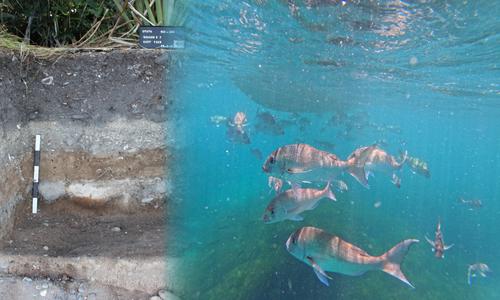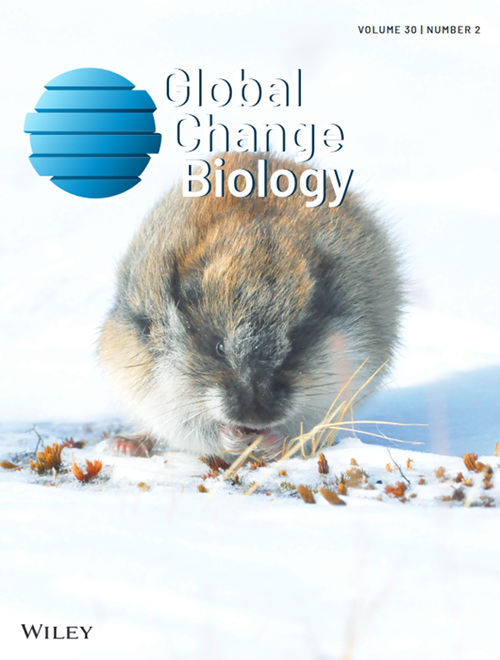Overcoming Shifting Baselines: Paleo-Behaviour Reveals Industrial Revolution as Tipping Point
IF 10.8
1区 环境科学与生态学
Q1 BIODIVERSITY CONSERVATION
引用次数: 0
Abstract
Human activities have significantly altered coastal ecosystems worldwide. The phenomenon of shifting baselines syndrome (SBS) complicates our understanding of these changes, masking the true scale of human impacts. This study investigates the long-term ecological effects of anthropogenic activities on New Zealand's coastal ecosystems over 800 years using fish otolith microchemical profiling and dynamic time warping across an entire stock unit. Results reveal a shift in snapper (Chrysophrys auratus; Sparidae) habitat-use behaviour, transitioning from low-salinity estuarine environments to higher-salinity habitats, correlating with ongoing land-use changes. This shift coincided with New Zealand's localised Industrial Revolution, which served as a tipping point for widespread ecosystem transformation. By comparing current coastal fish movement profiles with historical baselines, we provide evidence to address SBS and guide conservation strategies. Re-establishing pre-industrial habitat-use behaviours in snapper will indicate successful habitat restoration, promoting overall ecosystem connectivity and resilience. Our findings enable more effective habitat restoration measures and sustainable management practices, informing policies for maintaining coastal biodiversity and ecosystem function.

求助全文
约1分钟内获得全文
求助全文
来源期刊

Global Change Biology
环境科学-环境科学
CiteScore
21.50
自引率
5.20%
发文量
497
审稿时长
3.3 months
期刊介绍:
Global Change Biology is an environmental change journal committed to shaping the future and addressing the world's most pressing challenges, including sustainability, climate change, environmental protection, food and water safety, and global health.
Dedicated to fostering a profound understanding of the impacts of global change on biological systems and offering innovative solutions, the journal publishes a diverse range of content, including primary research articles, technical advances, research reviews, reports, opinions, perspectives, commentaries, and letters. Starting with the 2024 volume, Global Change Biology will transition to an online-only format, enhancing accessibility and contributing to the evolution of scholarly communication.
 求助内容:
求助内容: 应助结果提醒方式:
应助结果提醒方式:


